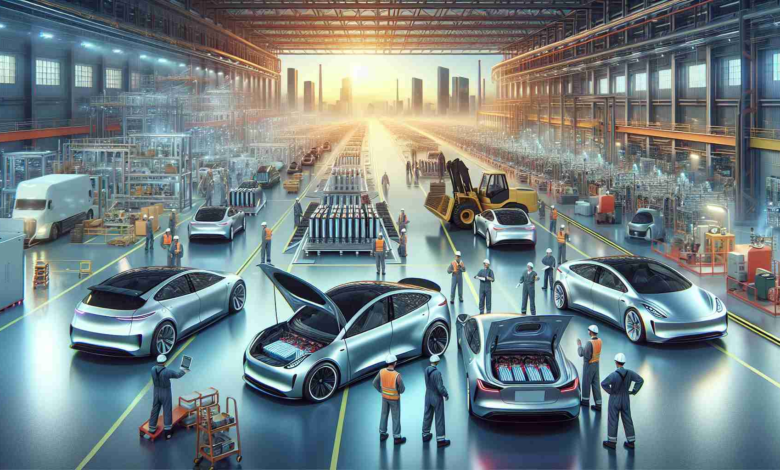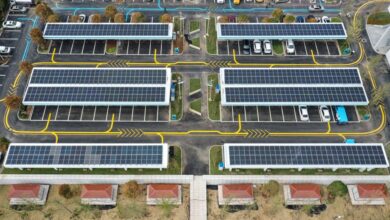Electric Vehicle Industry Poised for Major Shift with Solid-State Batteries

Summary: Solid-state batteries are set to become a game-changer for electric vehicles, promising drastically reduced charging times similar to traditional gasoline refueling, coupled with enhanced safety and longevity. This emergent technology has piqued the interest of major companies and could significantly boost the adoption of electric mobility worldwide.
The electric vehicle (EV) sector is on the cusp of a technological revolution with the advent of solid-state batteries, which are poised to drastically enhance the convenience and functionality of EVs. These batteries, utilizing solid electrolytes rather than liquid, stand to offer quicker charging times, higher energy density, improved safety, and extended lifespans compared to their lithium-ion counterparts with liquid electrolytes. Significantly, some manifestations of this technology aim to achieve charging times as brief as 10 minutes.
Industry leaders, including automobile giants and technology firms, are heavily investing in the evolution of solid-state battery technology. As companies like Toyota and Dyson pour resources into research and development, they demonstrate their belief in the potential of these batteries to drive the future of sustainable mobility forward.
However, the journey to commercial viability is not without challenges. Identifying solid materials that can conduct ions effectively at room temperatures and ensuring their stability over time are key hurdles researchers are facing.
The promise held by solid-state batteries extends beyond just the EV market. They have the potential to transform the fields of energy storage and consumer electronics, contributing towards a reduction in carbon emissions and an enhancement of sustainable energy practices.
As the solid-state battery technology advances, updates from scientific journals and industry leaders become critical for stakeholders. These insights are vital for keeping abreast of the progress in electric mobility and understanding the impact it will have on a greener future.
Industry Overview
The electric vehicle (EV) industry has witnessed substantial growth in recent years, driven by global efforts to reduce carbon emissions and a collective shift towards sustainable transportation solutions. Solid-state batteries are widely regarded as the next key evolution in EV technology, primarily because of their potential advantages over the traditional lithium-ion batteries. The industry’s anticipation for solid-state technology stems from its potential to overcome the limitations of current battery technology in terms of safety, charging speed, energy density, and longevity.
Market Forecasts
Market analysts have projected a bright future for the solid-state battery industry, as it is expected to grow significantly in the next decade. The growth is fueled by increasing investments from prominent automakers and the demand for electric vehicles with better performance and shorter charging times. Estimates suggest that the solid-state battery market could experience a compound annual growth rate (CAGR) upwards of 30% in the coming years, reaching a multi-billion-dollar valuation, as major players seek to capitalize on this promising technology.
Industry Challenges
Despite the optimistic outlook, the industry faces several challenges in bringing solid-state batteries to the mainstream market. One of the primary issues is the high cost of production, contributing to the expensive nature of these batteries as compared to the incumbent lithium-ion technology. Moreover, scaling up manufacturing to meet global demand while maintaining quality and performance remains a significant hurdle.
Technical challenges also persist, including the need for breakthroughs in finding suitable solid materials for electrolytes that can operate efficiently at various temperatures. Ensuring long-term durability and preventing dendrite formation, which can lead to short circuits, are additional areas of concern that researchers are working to address.
Related Industries
The implications of solid-state batteries extend beyond the automotive sector into areas such as grid storage, where batteries can store surplus renewable energy, and consumer electronics, where they can provide longer-lasting and safer power sources for gadgets and devices. By enabling more reliable and efficient storage solutions, solid-state technology plays a crucial role in the broader adoption of renewable energy, further accentuating its importance in the push for green energy solutions.
For more information on the broader market trends, sustainable energy practices, or scientific advancements in the field of solid-state batteries, visiting the official websites of leading industry organizations and research institutes can provide valuable insights.
For latest updates and comprehensive research on electric vehicles and energy storage technologies, these authoritative links may be of interest:
– International Energy Agency (IEA)
– United States Environmental Protection Agency (EPA)
– U.S. Department of Energy (DOE)
The development of solid-state battery technology is more than just an innovation for the automotive sector; it represents a push towards a future that prioritizes sustainability, efficiency, and safety. As the EV market evolves, it is poised to be a fundamental component in the global initiative towards decarbonization and an eco-friendly economy.

Michał Rogucki is a pioneering figure in the field of renewable energy, particularly known for his work on solar power innovations. His research and development efforts have significantly advanced solar panel efficiency and sustainability. Rogucki’s commitment to green energy solutions is also evident in his advocacy for integrating renewable sources into national power grids. His groundbreaking work not only contributes to the scientific community but also plays a crucial role in promoting environmental sustainability and energy independence. Rogucki’s influence extends beyond academia, impacting industry practices and public policy regarding renewable energy.



